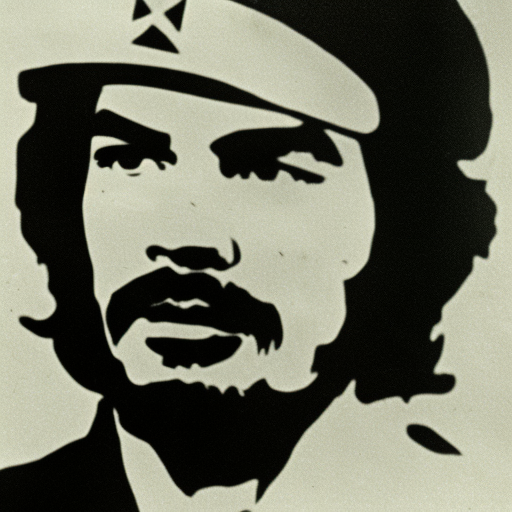Che Guevara: A Revolutionary Icon
Che Guevara, born on June 14, 1928, in Rosario, Argentina, was a Marxist revolutionary, physician, author, and guerrilla leader. He played a significant role in the Cuban Revolution and became an iconic figure in the global struggle against imperialism and capitalism. Guevara’s life and ideology continue to inspire and provoke debate to this day.
Early Life and Education
Guevara came from a middle-class family and developed an interest in Marxism and anti-imperialism during his youth. He studied medicine at the University of Buenos Aires, where he became involved in leftist political activities. Guevara’s travels throughout South America exposed him to the poverty and inequality that fueled his revolutionary fervor.
The Cuban Revolution
In 1955, Guevara met Fidel Castro, and they formed a strong bond based on their shared revolutionary ideals. Guevara joined Castro’s 26th of July Movement and played a crucial role in the Cuban Revolution, which aimed to overthrow the U.S.-backed dictator Fulgencio Batista. Guevara’s military expertise and strategic thinking were instrumental in the guerrilla warfare tactics employed by the revolutionaries.
Minister of Industry and International Influence
After the revolution’s success in 1959, Guevara held several key positions in the Cuban government. He served as the Minister of Industry, where he implemented agrarian reforms and nationalized industries. Guevara also played a significant role in shaping Cuba’s foreign policy, advocating for anti-imperialist movements worldwide.
The Congo and Bolivia
Guevara’s revolutionary zeal extended beyond Cuba. In 1965, he traveled to the Congo to support rebels fighting against the pro-Western government. However, the mission was unsuccessful, and Guevara returned to Cuba. Undeterred, he set his sights on Bolivia, where he believed a successful revolution could spark a continent-wide uprising. Unfortunately, Guevara’s efforts in Bolivia were met with failure, and he was captured by the Bolivian army on October 8, 1967.
Death and Legacy
On October 9, 1967, Guevara was executed in Bolivia, becoming a martyr for the revolutionary cause. His death solidified his status as an icon of resistance and anti-imperialism. Guevara’s image, captured in Alberto Korda’s famous photograph, became a symbol of rebellion and revolution worldwide.
Controversies and Criticisms
While Guevara is revered by many as a hero and champion of the oppressed, he is not without his critics. Some argue that his methods were too extreme, including his advocacy for armed struggle and his role in the execution of political opponents during the Cuban Revolution. Others criticize his economic policies, which they claim led to inefficiency and stagnation in Cuba.
Legacy and Influence
Despite the controversies surrounding Guevara, his legacy as a revolutionary icon endures. His writings, including “The Motorcycle Diaries” and “Guerrilla Warfare,” continue to inspire activists and revolutionaries around the world. Guevara’s image adorns countless posters, t-shirts, and murals, symbolizing resistance and the fight against oppression.
In conclusion, Che Guevara was a Marxist revolutionary who played a pivotal role in the Cuban Revolution and became an enduring symbol of resistance against imperialism and capitalism. His life and ideology continue to inspire and provoke debate, making him a figure of both admiration and controversy.












